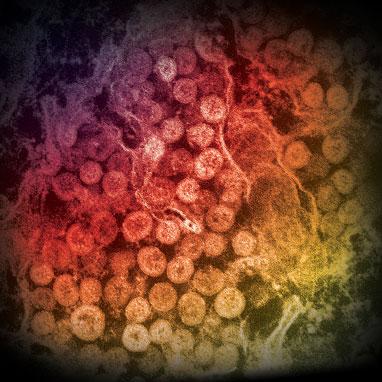A small Qatar University–led study published today in JAMA Network Open suggests that COVID-19 vaccination might enhance immunity against Middle East respiratory syndrome coronavirus (MERS-CoV) and, to a lesser degree, other human coronaviruses.
The researchers analyzed antibody responses to SARS-CoV-2, the virus that causes COVID-19, and MERS-CoV, which causes MERS, as well as cross-reactive responses to other human coronaviruses using 18 sera samples from 14 men who had previous MERS-CoV infections before (12) and after (6) receipt of two doses of the Pfizer/BioNTech or Moderna COVID-19 vaccine.
A control group was made up of 10 COVID-19 survivors and 10 never-infected COVID-19 vaccine recipients. Follow-up samples were obtained from four patients. The average patient age was 43.8 years, and the median interval between vaccination and sample collection was 146 days.
MERS-CoV caused 2013 outbreak
Severe acute respiratory syndrome coronavirus (SARS-CoV) caused an epidemic in 2002, and MERS-CoV did so in 2013. SARS-CoV-2 is the seventh coronavirus known to infect humans. These three viruses can cause severe respiratory infections and death, with fatality rates of 10%, 37%, and 3.7% for SARS-CoV, MERS-CoV, and SARS-CoV-2, respectively, the authors wrote.
The study authors noted that genome sequencing showed a 78% and 50% similarity, respectively, between SARS-CoV-2 and SARS-CoV and MERS-CoV. "Additionally, reactivity to SARS-CoV-2 was detected in prepandemic samples of seropositive individuals for other human CoVs," they wrote.
As of February 2022, 2,585 MERS cases and 890 deaths had been reported around the world, of which about 2,184 cases (84.5%) were in Saudi Arabia and 30 (1.2%) were in Qatar.
May lead to creation of pan-CoV vaccines
The prevaccination samples had high concentrations of anti-MERS S1 immunoglobin M and G (IgM and IgG antibodies; reactivity index, 0.80 to 54.7 for IgM and 0.85 to 176.3 for IgG). Cross-reactive antibodies with SARS-CoV and SARS-CoV-2 were also detected in these samples, but cross-reactivity against other coronaviruses wasn't.
The postvaccination samples also had significantly higher levels of total antibodies, IgG, and immunoglobulin A (IgA) against SARS-CoV-2 S protein than the prevaccination samples. Significantly higher anti-SARS S1 IgG levels were identified after vaccination (mean reactivity index, 55.4), suggesting cross-reactivity with the coronaviruses.
There were significantly boosted cross-reactive immune responses toward other human coronaviruses, with the strongest cross-recognition between SARS-CoV-2, SARS-CoV, and MERS-CoV.
Anti-S neutralizing antibodies against SARS-CoV-2 were also significantly greater after vaccination (50.5% neutralization). Antibody-dependent cellular cytotoxicity against SARS-CoV-2 S protein didn't rise significantly after vaccination.
All four follow-up samples showed that the patients responded to COVID-19 vaccination with significantly greater neutralization against both MERS-CoV (43.2%) and SARS-CoV-2 pseudoviruses (91.3%).
"There were significantly boosted cross-reactive immune responses toward other human coronaviruses, with the strongest cross-recognition between SARS-CoV-2, SARS-CoV, and MERS-CoV," the researchers wrote. "Isolation of broadly reactive and possibly Nabs [neutralizing antibodies] from these patients could help identify cross-reactive epitopes and hence, help in the structure-based design of pan-CoV vaccines and therapeutic molecules."



















